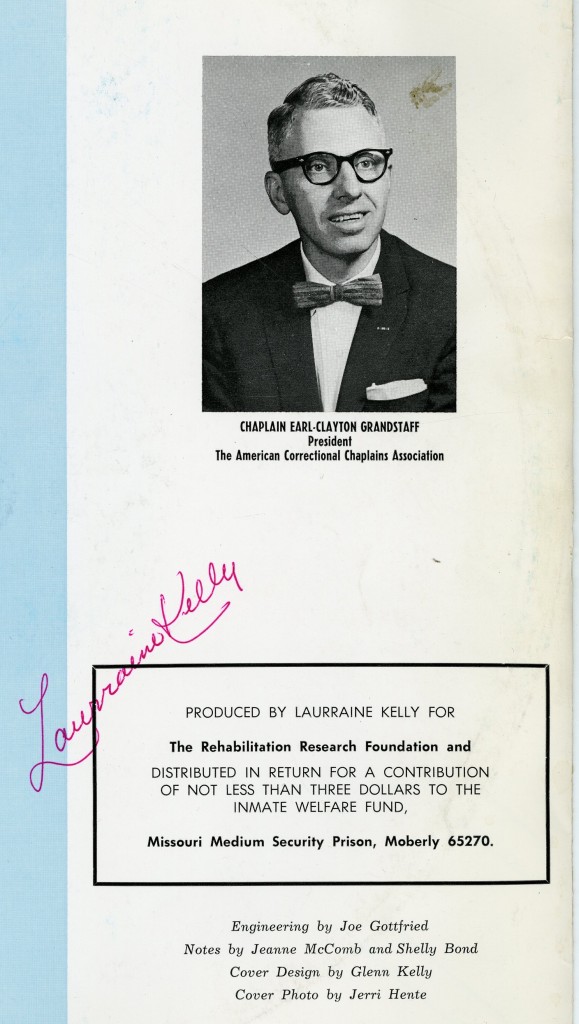Prisoners at Prayer (Nu-Sound Records) was arranged and produced under the auspices of Chaplain Earl-Clayton Grandstaff. Grandstaff was an ordained Baptist minister and the author of A Study of Correctional Chaplaincy Service (1966). His was a mixture of benevolent reform, faith in redemption, and spectacle. The novelty of reformed criminals is quite palpable on this album. As deviant peculiarity gives way to choral coordination in your ears and in front of your eyes, you cannot help but think of the Foucauldian framing, perhaps only through it.
 “Prisoners are people . . . yet visitors never cease to marvel at the personality and performance of prisoners,” says Superintendent Ed Haynes of the Missouri Medium Security Prison in Moberly, Missouri. Liberal conscience is emboldened here, swayed by the righteousness of its cause, its knowledge of being in the right. As reported in the liner notes, Haynes “welcomes students and serious visitors to what has been called a ‘bold venture of faith about the inherent goodness within every man . . . Truly NO MAN IS AN ISLAND when prisoners are at prayer.”
“Prisoners are people . . . yet visitors never cease to marvel at the personality and performance of prisoners,” says Superintendent Ed Haynes of the Missouri Medium Security Prison in Moberly, Missouri. Liberal conscience is emboldened here, swayed by the righteousness of its cause, its knowledge of being in the right. As reported in the liner notes, Haynes “welcomes students and serious visitors to what has been called a ‘bold venture of faith about the inherent goodness within every man . . . Truly NO MAN IS AN ISLAND when prisoners are at prayer.”
As the unattributed blurb on the sleeve attests, we have here “a really unique choir, performing a public service for the listener and for the participant alike, whether incarcerated or a member of the ‘free society’ …” The scare quotes seem to offer a rebuke of sorts, a reminder, a stinging criticism of the way in which members of the free society casually hold their assumptions.


